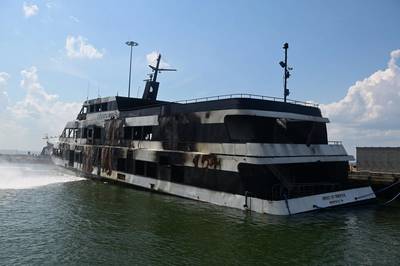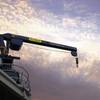US Coast Guard Clarifies Fire Safety Rules for Small Passenger Vessels
The U.S. Coast Guard published an interim rule on December 27, 2021, to implement Congressionally-mandated requirements for fire safety on “covered small passenger vessels” (CSPVs), as defined by 46 U.S.C. 3306(n). Congress adopted the statutory mandate in response to the fire and loss of 34 lives onboard the dive boat CONCEPTION off the California coast on 02 September 2019.
The USCG has identified a need to clarify the reference in 46 CFR 175.110(c) with respect to fire detection systems.
The text of 46 CFR 175.110(c) erroneously omitted the specific paragraph of §181.405 intended to apply to CSPVs and may lead the reader to believe that CSPVs are subject to all of the requirements in 46 CFR 181.405.
The intention of the applicability statement in 46 CFR 175.110(c) is for CSPV to comply with 181.405(c) regarding interconnected fire detection equipment, and not the entire section. The preamble of the interim rule specifically discusses adding 181.405(c) requirements for interconnected fire detection requirements on CSPVs. We did not indicate we wanted the other paragraphs in this section to apply to CSPVs, if they did not already apply under existing regulations (i.e., the entirety of §181.405 was already applicable to a “new vessel”, as defined by §175.400; and certain provisions may already have been applicable to an “existing vessel”, see §181.115).
Section 181.405(c) requires: Vessels described by 46 CFR 175.110(c) must have an interconnected fire detection system in compliance with § 181.450 installed in all enclosed areas where passengers and crew have routine access, including accommodation spaces and machinery spaces.
The Coast Guard will not require CSPVs to meet the requirements in §181.405, other than those in §181.405(c), unless they are otherwise applicable to the vessel.












